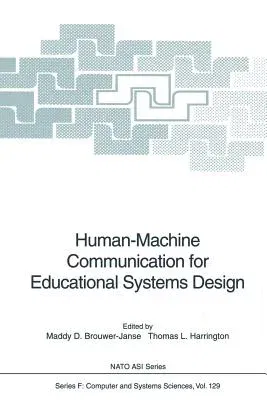Human-Machine Communication for Educational Systems Design (Softcover Reprint of the Original 1st 1994)Paperback - Softcover Reprint of the Original 1st 1994, 20 November 2013

Qty
1
Turbo
Ships in 2 - 3 days
In Stock
Free Delivery
Cash on Delivery
15 Days
Free Returns
Secure Checkout
Part of Series
NATO Asi Subseries F:
Part of Series
NATO Asi Subseries F: (Closed)
Print Length
349 pages
Language
English
Publisher
Springer
Date Published
20 Nov 2013
ISBN-10
3642851061
ISBN-13
9783642851063
Description
Product Details
Book Edition:
Softcover Reprint of the Original 1st 1994
Book Format:
Paperback
Country of Origin:
NL
Date Published:
20 November 2013
Dimensions:
23.39 x
15.6 x
1.91 cm
ISBN-10:
3642851061
ISBN-13:
9783642851063
Language:
English
Location:
Berlin, Heidelberg
Pages:
349
Publisher:
Weight:
508.02 gm

